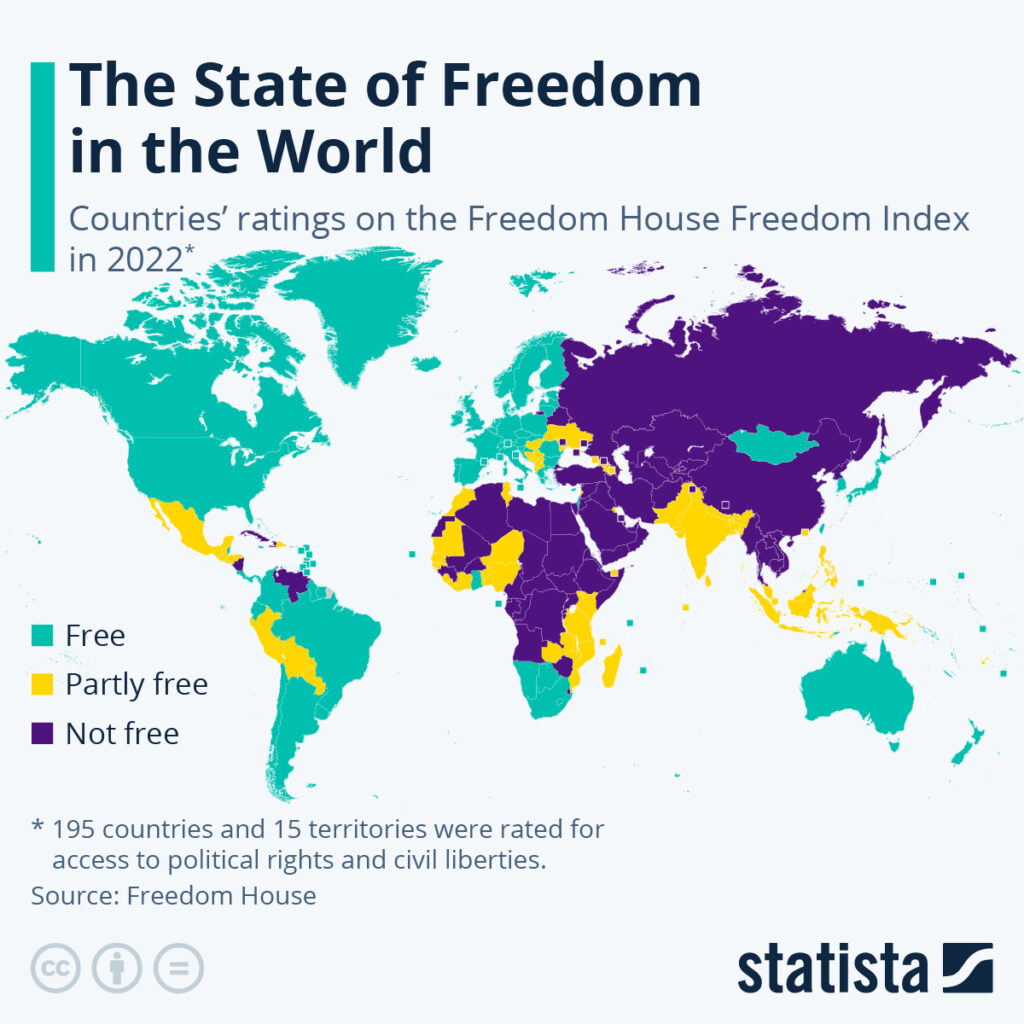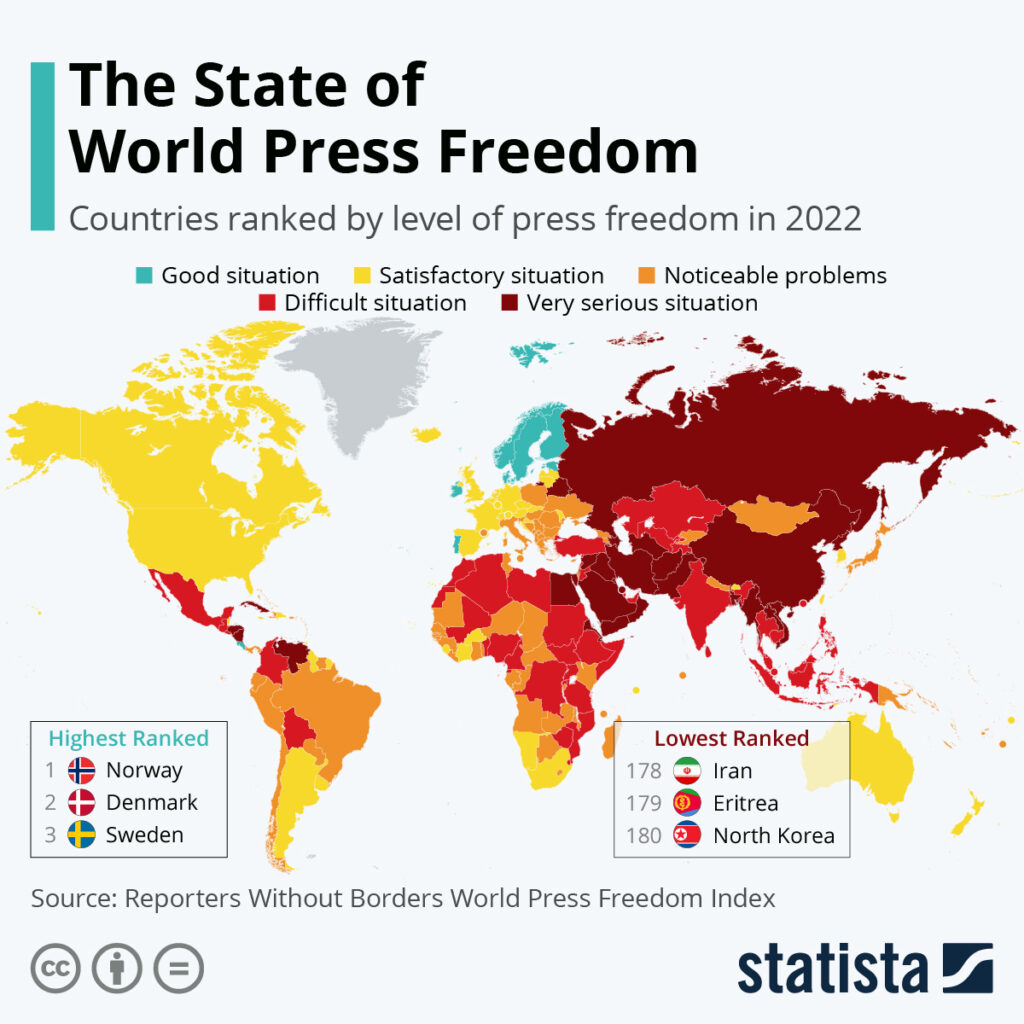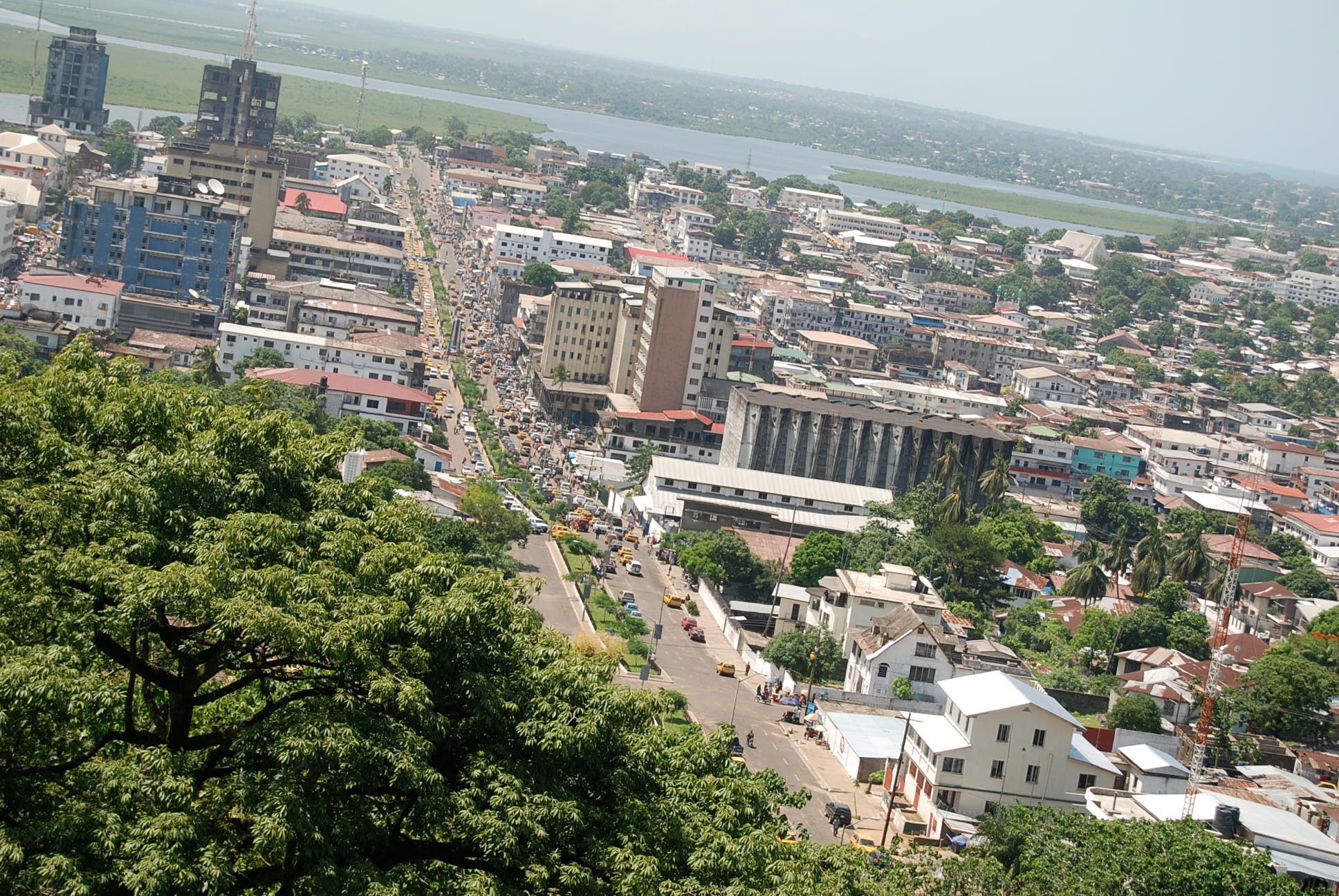Democratic watchdog organization Freedom House has released its annual ranking of the world’s most free and most suppressed nations. The report is considered a key barometer for global democracy and this year’s edition found that while global freedom has declined for the 17th year straight, the world may be headed towards a “possible turning point”, as the rate of decline is leveling off. This partly comes down to the easing off of pandemic-related restrictions which had impacted freedom of assembly and freedom of movement.
Conflicts, such as Russia’s war in Ukraine, as well as coups and attempted coups, as seen in Peru, are just some of the reasons freedom levels have declined, according to Freedom House. Countries where political divisions run deep were also mentioned, including in Brazil, where Bolsonaro’s supporters stormed Congress, the Supreme Court and the presidential palace in December after Lula won the election. In Afghanistan, the watchdog cites how the ruling Taliban have stopped girls from attending education after they reach their sixth grade and from attending universities, while in the West Bank, the Israeli government’s continued demolition of Palestinians’ housing is also highlighted as a clear cause of freedoms being curtailed.
A total of 195 countries and 15 territories were analyzed on their levels of access to political rights and civil liberties, before being categorized as either “free”, “partly free” or “not free”. Of those, 35 countries saw their scores fall, while 34 countries saw improvements. The analysis shows that press freedom is in retreat, as the number of countries receiving 0 points out of 4 for the indicator of ‘media freedom’ has shot up from 14 to 33 in the past 17 years.

While democracy has indeed been in decline for nearly two decades, the global landscape has improved since the report was first published 50 years ago. Back then, 44 out of 148 countries were counted as “free”, versus 84 out of 195 today.
Key Findings
Global freedom declined for the 17th consecutive year. Moscow’s war of aggression led to devastating human rights atrocities in Ukraine. New coups and other attempts to undermine representative government destabilized Burkina Faso, Tunisia, Peru, and Brazil. Previous years’ coups and ongoing repression continued to diminish basic liberties in Guinea and constrain those in Turkey, Myanmar, and Thailand, among others. Two countries suffered downgrades in their overall freedom status: Peru moved from Free to Partly Free, and Burkina Faso moved from Partly Free to Not Free.
The struggle for democracy may be approaching a turning point. The gap between the number of countries that registered overall improvements in political rights and civil liberties and those that registered overall declines for 2022 was the narrowest it has ever been through 17 years of global deterioration. Thirty-four countries made improvements, and the tally of countries with declines, at 35, was the smallest recorded since the negative pattern began. The gains were driven by more competitive elections as well as a rollback of pandemic-related restrictions that had disproportionately affected freedom of assembly and freedom of movement. Two countries, Colombia and Lesotho, earned upgrades in their overall freedom status, moving from Partly Free to Free.
While authoritarians remain extremely dangerous, they are not unbeatable. The year’s events showed that autocrats are far from infallible, and their errors provide openings for democratic forces. The effects of corruption and a focus on political control at the expense of competence exposed the limits of the authoritarian models offered by Beijing, Moscow, Caracas, or Tehran. Meanwhile, democratic alliances demonstrated solidarity and vigor.

Infringement on freedom of expression has long been a key driver of global democratic decline. Over the last 17 years, the number of countries and territories that receive a score of 0 out of 4 on the report’s media freedom indicator has ballooned from 14 to 33, as journalists face persistent attacks from autocrats and their supporters while receiving inadequate protection from intimidation and violence even in some democracies. The past year brought more of the same, with media freedom coming under pressure in at least 157 countries and territories during 2022. Scores for a related indicator pertaining to freedom of personal expression have also declined over the years amid greater invasions of privacy, harassment and intimidation, and incentives to self-censor both online and offline.
The fight for freedom persists across decades. When Freedom House issued the first edition of its global survey in 1973, 44 of 148 countries were rated Free. Today, 84 of 195 countries are Free. Over the past 50 years, consolidated democracies have not only emerged from deeply repressive environments but also proven to be remarkably resilient in the face of new challenges. Although democratization has slowed and encountered setbacks, ordinary people around the world, including in Iran, China, and Cuba, continue to defend their rights against authoritarian encroachment.






